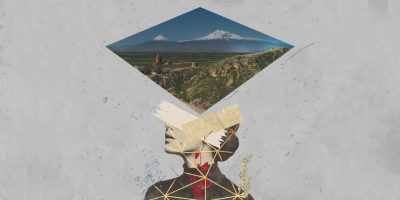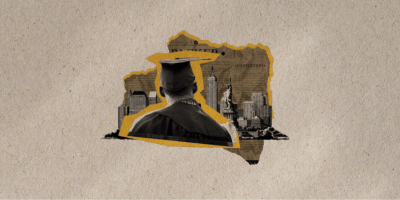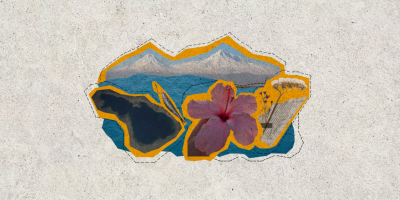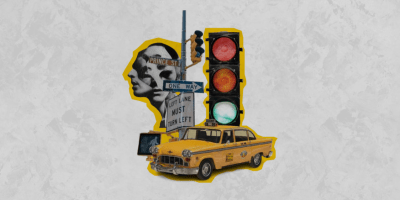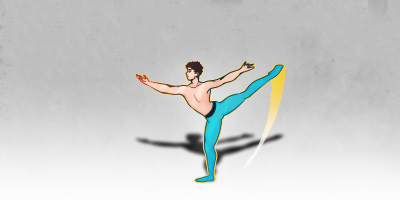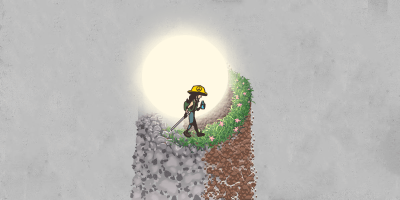
Like in most modern democracies, the NGO sector occupies its primary place in the development of society in Armenia.
The Council of Europe states that they “make an essential contribution to the development, realization and continued survival of democratic societies, in particular through the promotion of public awareness and the participatory involvement of citizens in the res publica.”
Additionally, NGOs positively impact the social and cultural lives of citizens. Knowing and understanding the types of problems faced by NGOs and assessing the level of their development is vital for making decisions and devising policies and strategies regarding the sector.
According to Dr. Yevgenya Paturyan, a lecturer at AUA and distinguished academic specializing in civil society, one of the sector’s main struggles is the unpredictable and uncertain environment of Armenia. She underscored this by highlighting the constant adaptation required in response to Armenia’s shifting socio-political landscape. And this uncertain environment is present on several levels. The highest level that NGOs meet uncertainty is the security level, that is, the “potential of the crisis on a state level.”
Next, NGOs are uncertain about how committed the government is to democracy and how much freedom it is ready to grant to the nonprofits. With the Velvet Revolution and the creation of a more “pro-democratic” environment, some NGOs get unexpected pushbacks, something like friendly fire. “They don’t know how much the government is willing to listen or not listen,” claimed Dr. Paturyan. “It’s much less predictable, it’s a better environment for them in some sense, but it’s much less predictable.”
Moreover, with Armenia’s recent “ideological shift” towards the EU and the West, the nonprofit sector once again is at the crossroads of opportunities. The important thing is, as Dr. Paturyan put it, “figure out what, what the real opportunities right now are, not the big, rosy pictures that they have of immediate democratization and then staying grounded on things that they can do and the government is willing to work with them on.”
A particular group of barriers are the most troublesome in the laws and regulations concerning the NGO sector. President of IC-YEC, Izabella Tovmasyan, said that in recent years, one of the biggest challenges that her NGO has encountered has been related to newly adopted laws and accounting. Frequent changes in rules and regulations make daily operations challenging. Continuous watchfulness is one of the most persistent requirements for nonprofits to stay legally compliant and operational. Hrachya Sahakyan, co-founder of Maqoor Environmental NGO, also confirmed this claim but at the same time encouraged not to focus on these difficulties “because everybody has those, and you just go through them.”
According to Dr. Paturyan, “this government has not enacted any new regulations that would constrain civil society, and neither hasn’t particularly empowered.” She also indicated a better relationship between the government and the nonprofits, compared to the pre-velvet revolution times, still warning about the potential risk of “limiting their traditional watchdog functions,” since “if you now work with the government, you have to mute your criticism.”
By categorizing this as an issue that the NGO sector has, the professor mentions that you have to mute your criticism or you are compromising your values. This is what they’re grappling with.
Next, Armenian NGOs need help getting continuous long-term financial support. NGOs should have more diverse funding sources and not rely on foreign funding or grant money. According to Dr. Paturyan, everything will be okay as long as foreign funding is stable and flowing. But what’s going to happen next? How do you allow things to develop naturally rather than artificially? She claims that the “somewhat unnatural development” of NGOs in Armenia is fueled by artificial funding. “It’s almost like a genetically modified kind of thing,” she said.
The societal views of NGOs also greatly vary. Some Armenians look suspiciously at organizations that get foreign funding and operate solely based on grants. However, positive attitudes also prevail, as mentioned by Sahakyan, “From people, we usually do not have any trust issues; they are very open to cooperate with us.”
Low levels of trust and negative attitudes are consistently seen. Although improved after the Velvet Revolution, the whole “grantmaker” (grant eating) narrative has somewhat reduced, but it’s still there. The opinions of the Armenian public are very nuanced, with a mixture of skepticism and openness for collaboration alongside NGOs Dr. Paturyan advocated “to let NGOs develop naturally.” The professor stressed the need to grant NGOs the chance to develop on their own without being too dominated or told about how they must be. Overwatering and over boosting the sector can result in a backlash and create artificial conditions. Overcoming the challenges of the nonprofit field will take a mind shift. Tax exemptions, localization of funding sources, reintroduction of membership fees, and utilization of volunteering as an essential resource can go a long way in improving the field.
The Armenian NGO sector has a multifaceted picture, illustrating its resilience while facing obstacles and uncertainties. The development of the nonprofits depends on Armenia’s geopolitical stances in the international system and on some internal factors. Adapting legislative changes, ensuring sustainable and constant funding, and, finally, fostering better public reputation and societal attitudes are necessary requirements NGOs have to accomplish to overcome sector-wide challenges. To be sustainable and effective in the future, NGOs have to grow and develop naturally, without excessive artificial interference.
Collaboration, adaptability, and strategic planning are essential for ensuring effectiveness and resilience. A supportive ecosystem is needed to foster the organic growth of civil society, coupled with state-controlled regulatory frameworks.


